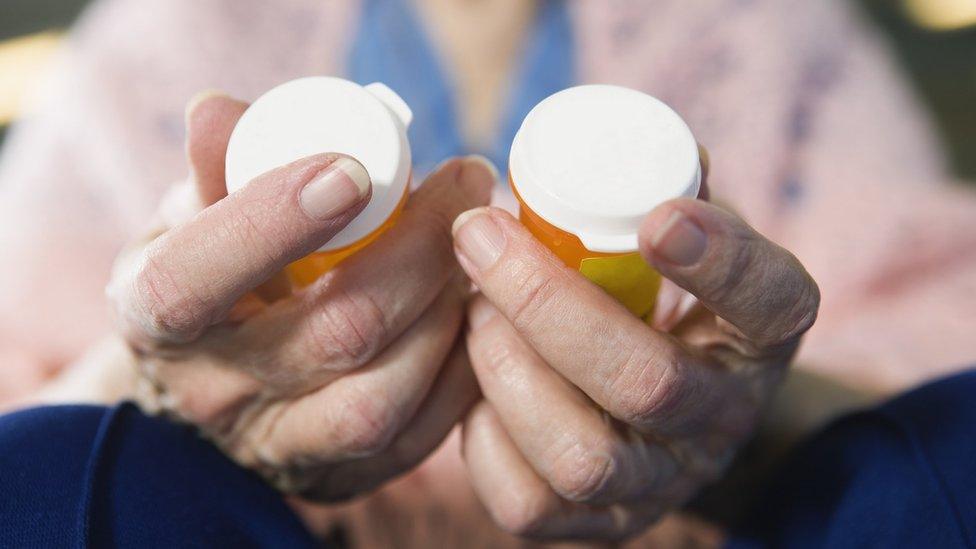Cancer Drugs Fund changes deeply concerning, say charities
- Published

Fifteen cancer charities have said they are "deeply concerned" about new plans for approving innovative cancer medicines for the NHS in England.
In a letter to the prime minister, the charities said many drugs would "now struggle to gain approval".
The medicines regulator has rejected this and said drugs would be approved faster than anywhere else in Europe.
The dispute is over planned changes to the Cancer Drugs Fund - a special pot of money just for cancer medicines.
It currently pays for innovative drugs that have been deemed too expensive for the NHS as a whole.
It includes medicines such as Kadcyla, which initially cost £90,000 per patient, and extends the lives of women with breast cancer by six months on average.
However, the fund was a victim of its own success and has been greatly overspent.
Its costs have risen to £340m in 2015-16 from an initial annual budget of £200m when it was set up in 2011.
'Flawed'
The new system will start in July, fixing the fund's budget at £340m.
The National Institute of Health and Care Excellence (NICE) will give new medicines a Yes, No or Maybe rating before they come to market.
Those given the go-ahead will be routinely offered across the NHS, while those given a Maybe rating can be considered for the Cancer Drugs Fund.
But the 15 signatories of the letter, who include the chief executives of Beating Bowel Cancer, Prostate Cancer UK and Target Ovarian Cancer, say NICE's decision making is flawed.
Their letter to Prime Minister David Cameron, whose government introduced the Cancer Drugs Fund, says: "We are deeply concerned by the lack of reform proposed to the wider NICE process of appraising cancer medicines.
"Unfortunately the new system does not update the methodology used by NICE, introduced back in 1999, and many clinically-effective treatments will now struggle to gain approval.
"We urge you to intervene and commit to a review of the outdated mechanisms used to assess cancer medicines."
Baroness Delyth Morgan, the chief executive of Breast Cancer Now and one of the signatories, told the BBC: "What I'm worried about is that very soon we're going to see cancer patients who have potentially incurable cancer missing out on modern treatments that are available in other countries or across the border in the UK."
She added: "Not a single breast cancer drug has been considered cost-effective by NICE in the last seven years and this simply cannot continue."
Cost
NICE said the new system would see drugs approved for use on the NHS "earlier than any other country in Europe".
Sir Andrew Dillon, the organisation's chief executive, said: "I understand and support the ambition the charities have for access to effective cancer medicines.
"Our approach to assessing the value of new cancer drugs has been reviewed on a regular basis since we were set up in 1999 and is already more generous than for other conditions.
"It's now up to [pharmaceutical] companies to show that they recognise the challenges as well as the opportunities their new drugs present to the NHS, and show the same flexibility on cost to NICE as they have been showing to NHS England in its recent negotiations with companies for drugs already in the Cancer Drugs Fund."
- Published25 February 2016

- Published9 December 2014
- Published12 November 2014

- Published4 September 2015
